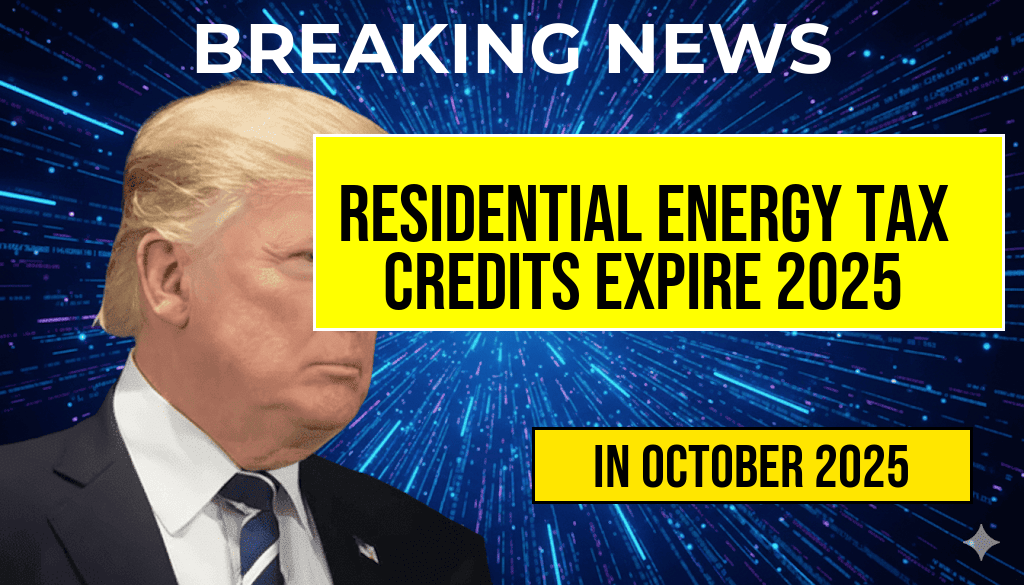The landscape of residential energy tax credits is poised for a significant transformation as key incentives are set to expire after 2025. These credits, designed to promote the adoption of renewable energy technologies and improve energy efficiency in homes across the United States, have played a crucial role in reducing the financial burden of transitioning to greener alternatives. As homeowners and investors prepare for the impending changes, industry experts are urging individuals to take advantage of these incentives while they last. The expiration of these programs raises concerns about the future of green energy initiatives and the potential impact on the nation’s commitment to sustainability.
Understanding the Current Landscape of Energy Tax Credits
Since their inception, residential energy tax credits have offered homeowners financial relief for investing in renewable energy systems such as solar panels, wind turbines, and energy-efficient appliances. These credits have not only reduced the cost of installation but have also incentivized energy conservation efforts nationwide.
Types of Residential Energy Tax Credits
- Solar Investment Tax Credit (ITC): Currently allows homeowners to deduct a significant percentage of the cost of solar systems from their federal taxes.
- Residential Energy Efficient Property Credit: Offers incentives for various renewable energy installations, including geothermal heat pumps and small wind turbines.
- Energy Efficient Home Credit: Incentivizes builders to construct homes that meet strict energy efficiency standards.
The Implications of Expiration
The imminent expiration of these tax credits has raised alarms among environmental advocates and industry stakeholders. Many fear that the withdrawal of financial incentives could slow the momentum toward renewable energy adoption. The following points outline the potential ramifications:
- Increased Costs: Without tax credits, the initial investment for renewable energy systems may become prohibitive for many homeowners.
- Stalled Growth in Renewable Energy Sector: The expiration could lead to a downturn in the job market associated with green energy, as fewer projects may be initiated.
- Environmental Impact: A decrease in renewable energy adoption may result in higher carbon emissions, undermining efforts to combat climate change.
Calls for Legislative Action
As the 2025 expiration date approaches, there are growing calls for Congress to consider extending or enhancing these tax credits. Advocates argue that maintaining these incentives is essential for bolstering the nation’s energy independence and achieving long-term sustainability goals. Some potential legislative solutions include:
- Extension of Existing Credits: Lawmakers could consider extending current credits to allow more time for homeowners to benefit.
- Introduction of New Incentives: Proposals for new or modified incentives that reflect the evolving energy landscape may emerge.
- Increased Funding for Energy Research: Supporting research and development could lead to innovative solutions that make renewable energy more accessible.
What Homeowners Can Do Now
For homeowners looking to take advantage of the current tax credits, timing is crucial. Experts recommend the following steps:
- Research Available Incentives: Understanding the specifics of each tax credit can help homeowners make informed decisions.
- Consult with Professionals: Engaging with certified energy auditors and installers can provide insights into the best energy solutions tailored to individual needs.
- Plan for Installation: Initiating projects soon can ensure eligibility for existing tax credits before they expire.
Conclusion: The Future of Green Energy Incentives
The impending expiration of residential energy tax credits after 2025 marks a pivotal moment in the United States’ approach to renewable energy. As stakeholders navigate this shifting landscape, the need for strategic action and legislative support remains paramount. For more information on energy tax credits and their impact, visit [Forbes](https://www.forbes.com/advisor/business/renewable-energy-tax-credits/) or [Wikipedia](https://en.wikipedia.org/wiki/Federal_tax_credits_for_energy_efficiency_in_the_United_States). The decisions made in the coming years will significantly shape the trajectory of green energy adoption and the nation’s environmental future.
Frequently Asked Questions
What are the Residential Energy Tax Credits?
The Residential Energy Tax Credits are financial incentives provided by the government to encourage homeowners to invest in renewable energy systems, such as solar panels, wind turbines, and energy-efficient home improvements.
When will the Residential Energy Tax Credits expire?
The Residential Energy Tax Credits are set to expire after 2025, meaning homeowners will need to take advantage of these incentives before the deadline to benefit from the tax savings.
How can homeowners benefit from these green energy incentives?
Homeowners can benefit from green energy incentives by reducing their overall tax liability when they install eligible renewable energy systems or make energy-efficient upgrades to their homes, thus lowering their overall energy costs.
Are there any specific eligibility requirements for the Residential Energy Tax Credits?
Yes, there are specific eligibility requirements for the Residential Energy Tax Credits, including the type of energy system installed, its efficiency ratings, and whether it meets certain federal and state guidelines.
What should homeowners do if they miss the 2025 deadline for these credits?
If homeowners miss the 2025 deadline for the Residential Energy Tax Credits, they will no longer be eligible for these tax incentives, which could result in higher upfront costs for renewable energy installations without the associated tax benefits.

Leave a Reply